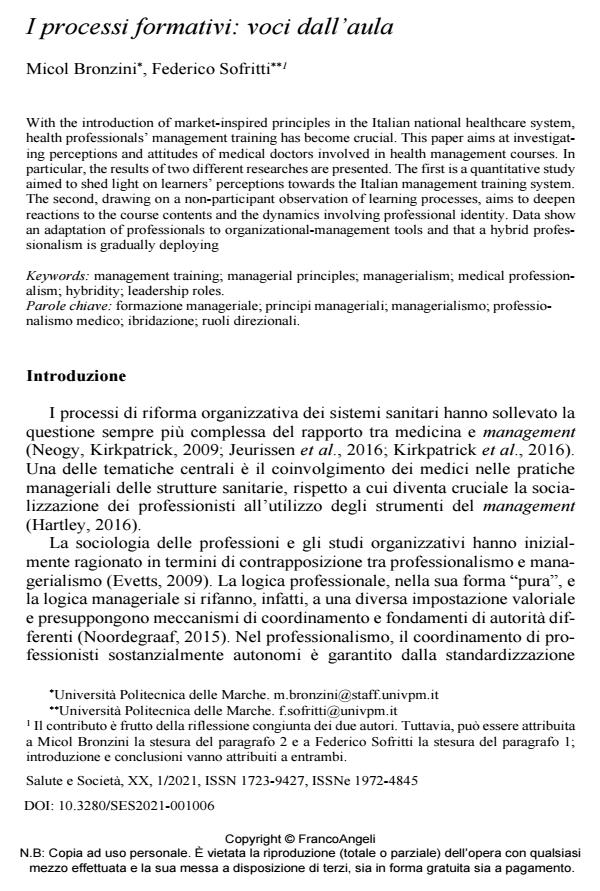I processi formativi: voci dall’aula
Journal title SALUTE E SOCIETÀ
Author/s Micol Bronzini, Federico Sofritti
Publishing Year 2021 Issue 2021/1
Language Italian Pages 16 P. 72-87 File size 251 KB
DOI 10.3280/SES2021-001006
DOI is like a bar code for intellectual property: to have more infomation
click here
Below, you can see the article first page
If you want to buy this article in PDF format, you can do it, following the instructions to buy download credits

FrancoAngeli is member of Publishers International Linking Association, Inc (PILA), a not-for-profit association which run the CrossRef service enabling links to and from online scholarly content.
With the introduction of market-inspired principles in the Italian national healthcare system, health professionals’ management training has become crucial. This paper aims at investigating perceptions and attitudes of medical doctors involved in health management courses. In partic-ular, the results of two different researches are presented. The first is a quantitative study aimed to shed light on learners’ perceptions towards the Italian management training system. The second, drawing on a non-participant observation of learning processes, aims to deepen reactions to the course contents and the dynamics involving professional identity. Data show an adaptation of professionals to organizational-management tools and that a hybrid profes-sionalism is gradually deploying
Keywords: Management training; managerial principles; managerialism; medical professional-ism; hybridity; leadership roles.
Micol Bronzini, Federico Sofritti, I processi formativi: voci dall’aula in "SALUTE E SOCIETÀ" 1/2021, pp 72-87, DOI: 10.3280/SES2021-001006